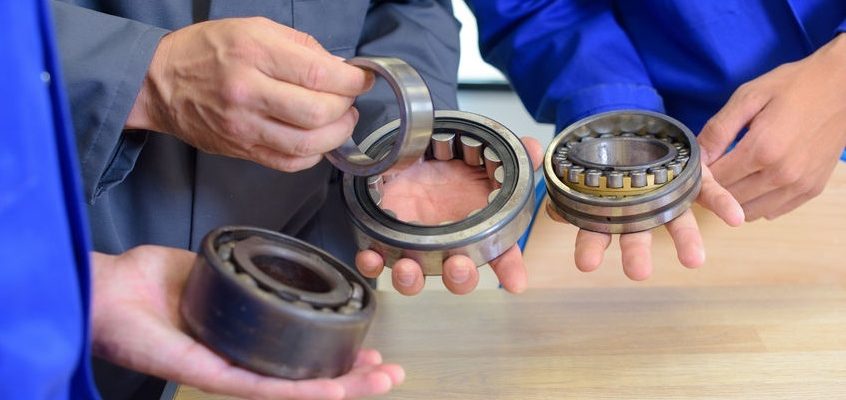Wheel bearings provide an essential connection between the moving and non-moving parts of any vehicle. They are designed to reduce the amount of friction that occurs while the wheel is rotating.
As with any other part of a vehicle, wheel bearings get worn down. When the bearings will stop functioning will vary, depending on how these were installed and used.
In general, experts recommend replacing the bearings when the vehicle itself reaches a mileage of between 80,000 and 118,000 miles. To be safe, it is recommended that you check the wheel bearings at the same time that you are fixing or replacing the brakes, regardless of the mileage. By regularly checking your wheel bearings, you are reducing the chances that they will break down while you are on the road.
But what do you do if you’re not planning to have your brakes checked any time soon? You don’t want your vehicle seizing while on a long drive in the middle of nowhere.
Let a reputable manufacturer and supplier of wheel bearings in Dubai give you a few tips on effectively preventing wheel bearing failure. But first, here are a few reasons why this failure occurs and what signs to look out for.
Causes of Bearing Failure
1. Water contamination
Some custom bearing manufacturers lubricate the components with petroleum and have them sealed to prevent the lubricant from escaping. However, bearings are not waterproof. If you drive through a flood, the water may affect the lubricant, causing the bearing to fail.
In this case, older models may be serviceable, while more modern bearings may not be. Given their design, modern bearings have to be replaced immediately if they are exposed to water or any kind of moisture.
2. Wheel damage
Wheel bearings can become damaged whenever there is extreme pressure placed on the wheel. This could take place when the wheel hits a curb or a pothole, for example. The pressure can create small flaws or imperfections in the bearings, hastening failure.
3. Improper installation
Bearings can also fail if they have not been installed properly. It can be as simple as not the nuts not being tightened enough or being tightened too much. The tools and grease you use can also affect the lifespan of the bearings and, as such, it is important to take those into account as well.
If you hear any unusual noises from your wheels, have your car checked as soon as possible. This ensures that you and your passengers stay safe at all times.
Tips to Prevent Wheel Bearing Failure
● Handle wheel bearings with caution
Although bearings look dense and rugged, they are quite delicate. Any unnecessary banging or mishandling can alter their internal components or even their structure. This can result in damage and the premature failure of the bearing.
Because of their sensitivity to pressure, it is important to handle these components with care. At each stage, from transport to storage and installation, you must handle the bearings as you would handle glass.
● Keep them clean
Working with vehicles or any type of engine involves being exposed to dirt, grease and grime. You can get rough with most other components, but not wheel bearings.
The slightest amount of dirt infiltrating the bearings’ internal components can affect their ability to function, resulting in a reduced lifespan. When working with wheel bearings, ensure that your hands, the work area, and any tools you use during installation are spotless to prevent any dirt from contaminating your new component.
● Use the right equipment
Invest in the right tools and lubricant designed for the bearing you plan to use and install. Choosing the wrong equipment and accessories can damage the delicate parts. This could cause the bearings to malfunction, not work as efficiently as they should, or even fail prematurely.
Never use a hammer or impact wrench to remove or install wheel bearings. Doing so can damage the bearings, causing them to fail. It is also important not to reuse accessories from your old bearings such as nuts, bolts or seals as these may already be worn or damaged, or they could place unnecessary pressure on the wheel bearing.
Wheel bearings are complex yet delicate components. Keeping them in good working condition ensures that your car runs smoothly. Keep these tips in mind to prevent your bearings from malfunctioning or failing before their time.
AUTHOR BIO
Hassanein Alwan is the Managing Director of Mineral Circles Bearings with more than 10 years’ experience in the bearing industry’s technical support division, sales and marketing, plus strategic business development consultancy.


